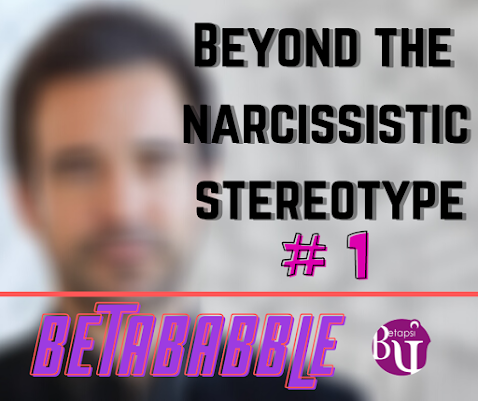‘People with narcissistic personality disorder have a grandiose view of their abilities and are preoccupied with fantasies of great success’ (Kring, Johnson, Davidson & Neale, 2012).
It took me nearly four years to finish my bachelor’s degree in Psychology; three years to realise that the above description of narcissism is only partly true. Prior to that, I had twenty years’ worth of experience dealing first-hand with a narcissist. I didn’t know it then, and it is only now after a few therapeutic sessions that I have started to come to terms with what truly constitutes a narcissist and more importantly, how to deal with one.
My own experience was the complete opposite of what was written in books.
There was no grandiose view of one’s abilities, no fantasies, and no sense of personal inflation. On the contrary, it was a constant and desperate plea for attention; which, when given, was instantly rejected. My experience was characterised by an overwhelming feeling of instability, hurt, and frustration. I felt like nothing ever made sense, like my feet wanted to touch stable and solid ground but they were not even mine to control. This feeling stayed with me throughout my life and manifested itself into constant self-doubt, a need for validation, and paranoia. Recently I started connecting more dots. I had gotten into a new relationship and all of a sudden there was a huge sense of competition for my attention. I didn’t notice it at first, as it was masked by subtlety, but then frustration took a hold on me and that was when I realised that things were not how they should be.
This is because there are two variants of narcissistic personality disorders: narcissistic grandiosity and narcissistic vulnerability.
The former is the stereotypical view of narcissism where the individual is termed as malignant, manipulative, arrogant, ‘special’ child, thick-skinned (more likely to turn on others when hurt), overt, and psychopathic. Alternatively, an individual with narcissistic vulnerability is described as ‘craving’, covert, hyper vigilant, shamed child, compensatory, and shy. What converges both types are elements of callousness, manipulation, and entitlement.
Hence, narcissism does not necessarily represent a surplus of self-esteem or insecurity.
More specifically, it encompasses:
a ravishing hunger for admiration and appreciation,
a desire to be the centre of attention in situations that do not directly involve the individual,
and an expectation of special treatment even when the said individual is simply executing the day’s basic tasks.
Relationships are characterised by a lack of empathy which fuel in them a sense of superiority. Naturally, narcissists can view everyone else as inferior. However, the thing I have noticed with narcissists is that nothing ever happens in a straightforward manner: if one views somebody else as inferior, one will not be smug about it. The tendency will be that the said person will be intolerable to any other view, constantly disagrees with everyone else, and pushes other people to self-question on any topic in question.
From my experience, the thing that drained me most was that the narcissist must always come first – it is all about how their own needs have to be met. For me, this led to emotional fatigue as I always had to ‘adore’ the individual in order to not fragment their already fragile self-worth.
I am currently learning how to understand all this; it is one thing to notice certain patterns in behaviour, and it is another thing to accept the situation for what it is. I am currently being guided by a professional therapist, as these are very delicate situations.
Together with the therapist, I have worked a lot to try and understand how to better relate in this situation.
Firstly, I learnt to never confront a narcissist. I started distinguishing which battles to fight and which to avoid. Vulnerable narcissists are overwhelmed by shame. Rather than tapping in that shame, I worked hard to learn the person’s weakest points and how to avoid them – not out of cowardice, but out of self-protection.
Secondly, I learnt not to engage in power battles. I learnt to distance myself – to get to know myself, my limits, strengths and vulnerabilities. I got to rediscover my self-worth. And once I built myself up, I learnt to filter through all the emotional outbursts in the relationship. I learnt to avoid the pitfall of self-doubt.
Lastly, I learnt to accept the person. After all, the person definitely does not act out of spite. In fact, most are oblivious to their own patterns. No person is ever just a “narcissist” – we are all human beings, with our own merits and defects. We just need to be more careful as to how we relate.
If you feel like this article is familiar to a reality you have experienced, I advise you to reach out and surround yourself with a good support system. Together, we can all brave through storms!
Written by an anonymous person (2020)

